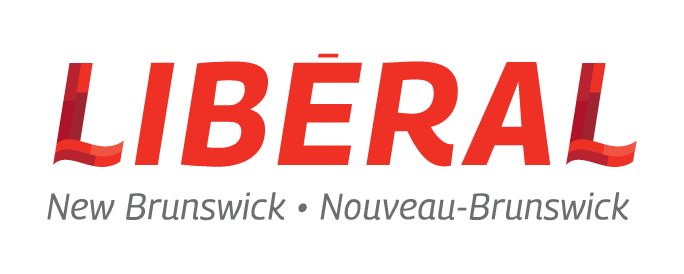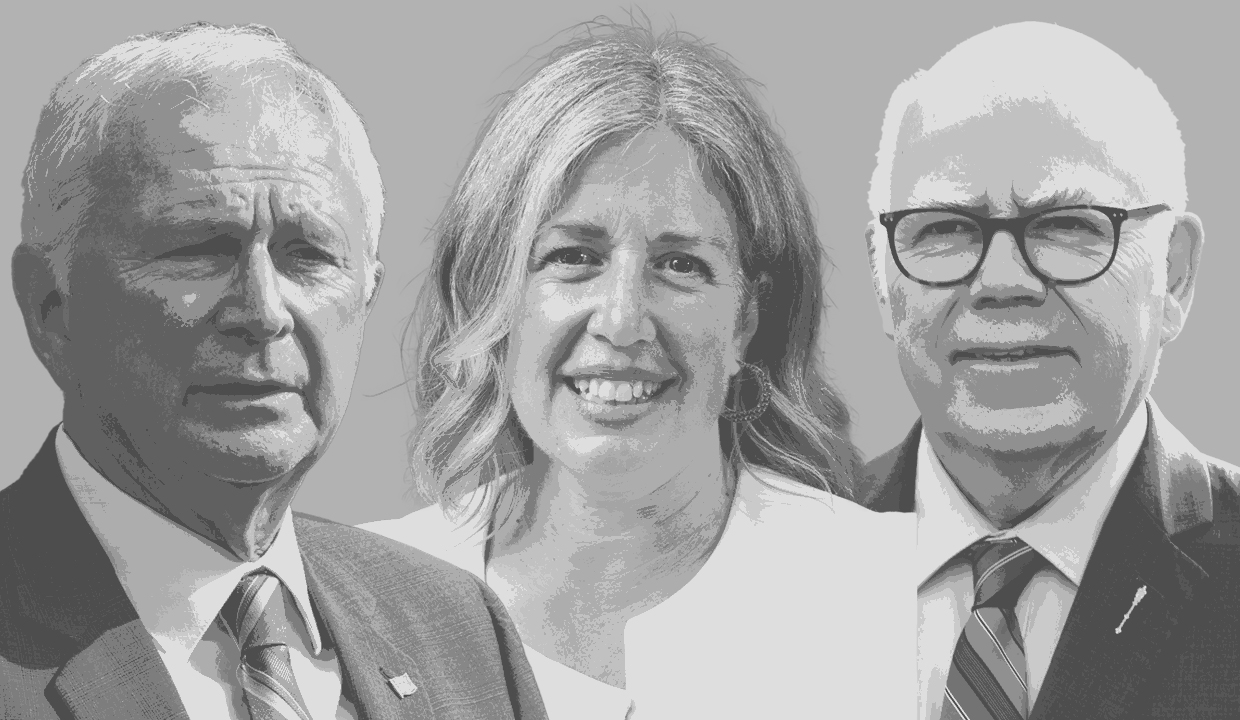With ten campaign days left to go in New Brunswick’s general election, the latest publicly released poll shows Susan Holt’s Liberals at 44% to Blaine Higgs PCs at 37%. The Green Party is at 14% and the People’s Alliance is at 2%. A party will need 25 seats or more to form a majority. With only the Liberals, PCs and Greens expected to win seats, even a two seat Green caucus could face heavy courting from any minority government. The PCs are already running with side messages on the perils of a Liberal-Green coalition.
Even if the PCs manage to win a plurality of seats, Green leader David Coon has largely ruled out working with a Higgs-led government. The Greens have promised there would be conditions and demands to be met for any new government to receive any Green assistance. The matter may be moot if Green support is down even just a couple of points, and Liberal support is up province-wide 10 points over the last general election; Both effects could be magnified in Fredericton allowing the Liberals to take Green seats.
Polls did show that nearly twice as many people among those who viewed or followed the televised election debate felt Holt won versus Higgs. Otherwise, the campaign style and messaging choices very much reflect efforts by the parties to play to strengths and minimize weaknesses – even down to the design of the election signs. Liberal signs emphasize Holt – almost more so than the party candidates in some billboards – and minimize mention of the Liberal Party or showing Liberal red and anything that might trigger association with the Trudeau federal Liberals. The PCs emphasize their candidates and the party, but mostly leave the Premier – with higher personal disapproval ratings – out of it.
The path to 25 seats
The three major cities and their greater areas are battlegrounds. Conservatives will need to hold districts like Carleton-Victoria, Saint John Harbour, Fredericton North and Moncton South to keep 25 seats. Liberals are targeting hard on the battlegrounds, but also need to watch some of their traditional electoral back yard. There’s some talk of a localized surges of support for the mayors running for the PCs in northern New Brunswick – in particular Kim Chamberlain in Bathurst – though it would have to be quite a surge to overcome decades-long Liberal dominance. Liberals in Fredericton and Tantramar also face serious Green challengers. Aside from 2018, New Brunswick has had a century of majority governments. Yet the path to get there with efficient voter support may be toughest both major parties have faced.
5 seats to watch
Moncton South: Held by PC incumbent Greg Turner – gains in the Moncton area made the 2020 PC majority possible.
Saint John – Portland Simonds: PC Trevor Holder took this seat in 2020. He is not re-offering so a fresh slate of candidates vies for this district.
Saint John Harbour: Similar to Saint John – Portland Simonds, Saint John Harbour sees a fresh set of candidates vying for the seat after PC incumbent Arlene Dunn chose not to run again.
Fredericton North: PC Incumbent Jill Green will face a lot of pressure from the Liberals, who have often held this district in recent years. The Greens will also present a strong challenge.
Fredericton South Silverwood: Susan Holt’s district. With her party surging, it may go without saying she should easily take the district. However, this district was once part of Green Party David Coon’s district and there is a strong Green challenger.
Gaffes and errors
No party has a monopoly on gaffes or slips and this campaign is no different. The PCs continue to take criticism for the nomination and candidacy of evangelical activist Faytene Grasseschi in Hampton Fundy-St. Martin’s as well as in Saint John West – Lancaster, where candidate Kim Costain’s lip-syncing of suggestive lyrics on social media prior to her time in politics has become an issue. Liberal Leader Susan Holt faced criticism over her comparisons of residents of her former district of Bathurst versus the residents in Fredericton – describing the latter as highly educated and the former as having “a totally different makeup.” The Liberals have also faced heat for an error in their platform, essentially double-counting HST revenue in their costing which when corrected, leaves their plan leading to deficits. It’s difficult to tell how much of this is convincing for voters, but it is peppered in the coverage.
Main contenders’ advantages and challenges
In some ways, the provincial election comes down to whether each party can capitalize on its advantages and find ways to reduce the effect of its disadvantages. What will win out? Carbon tax rage or time for a change? Some of these factors may also affect ground game – especially if either or both sets of disadvantages cause some of the volunteer stalwarts to sit this one out.

Advantages
- Leader – More viewers liked Susan Holt’s debate performance
- Message of change — A powerful factor when running against a twice elected premier with lower leadership approval ratings in a province that usually follows cycles of government changing hands between the two parties
- Promises and messaging on services – health and education – resonating and getting positive coverage.
- Strong fundraising – surpassing the PCs
Disadvantages
- Justin Trudeau and the federal Liberal Party. Trudeau’s policies, especially carbon tax, are unpopular in NB. Holt has tried not terribly successfully to distance herself from the PM and his brand
- Green Party vote-vacuum. Vote splitting may cause challenges in districts that otherwise would be Liberal gains

Advantages
- Higgs’ government fiscal/economic record – increases-in and comparatively high-in-the-pack investment, employment and inflow of people working in the province
- Popularity with NB Businesses – over economic policy and strong pro-development approach on energy and other projects
- Elimination of most of the People’s Alliance vote-splitting with the absorption of their MLAs into the PC fold
Disadvantages
- Continued drag/division/fallout from social issues and some nominations – also contributing to the low number of incumbents re-offering
- Higgs government has baggage – Controversial handling of Policy 713 (pronouns), French immersion, labour disputes, and healthcare issues. Higgs’ leadership approval rating is the lowest among the premiers
Key issues
With the Holt Liberals pushing hard on healthcare, it has emerged as a central issue in the debate and in the campaign. In some respects, the parties say very similar things about using technology and new systems to be innovative and get more done faster. The Liberals’ central promise is 30 new community care clinics all over the province within four years. The PCs are running in part on continuing work on faster and better delivered healthcare. The discussion often swings away from policies and more toward fact checks and counter fact checks about the PC Government’s record on healthcare.
Less prominent but still finding their own tracks are discussions about how the province faces the energy transition. Susan Holt still takes a more social licence centred “wait and see” on development and projects compared with Higgs’ desiring be strongly supportive of transition fuels and Small Modular Nuclear Reactors while simultaneously promising a court challenge of the Trudeau federal government’s carbon tax. In March, Susan Holt wrote to the Prime Minister calling for a pause in the carbon tax, drawing criticism from Higgs for stopping short of calling for the tax’s abolition.
Other issues surface periodically. The PCs have declared that there would be no more safe injection facilities and paired this with a refurbished promise to legislate on situational compassionate intervention on substance abuse. Green leader David Coon pushed for stricter rent increase caps and more collective-built housing. Susan Holt committed to building 30,000 units by 2030 – leading to more wrangling with the PCs – whose government announced a housing strategy document that included a 6,000 units per year objective.
Remaining NB election key dates
- October 12 – Advance Polls (Day 1)
- October 15 – Advance Polls (Day 2)
- October 19 – Deadline for candidates to withdraw
- October 21 – Deadline for receipt of Special Ballots
